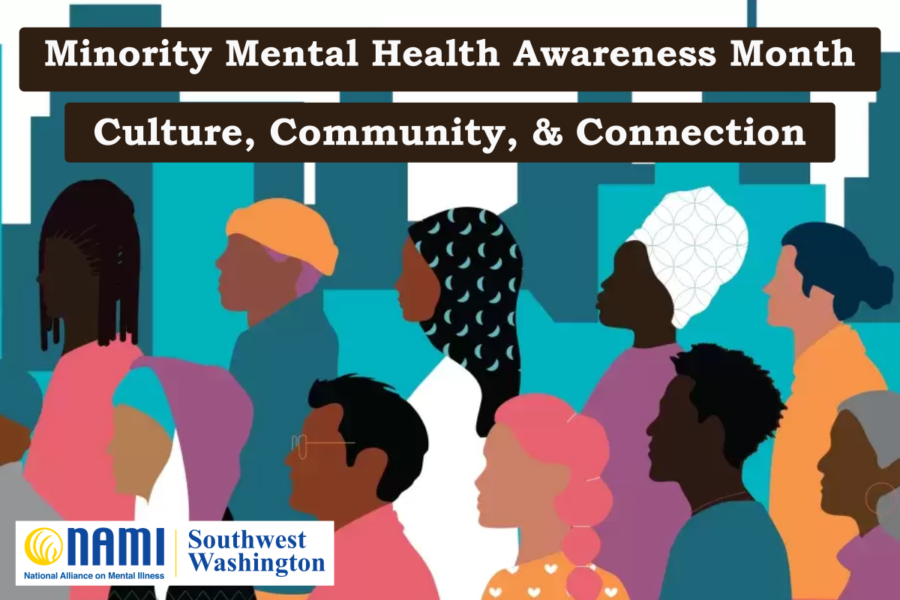Blog by NAMI Southwest Washington
Celebrating Culture, Community, & Connection
In July, we come together to observe National Minority Mental Health Awareness Month. This year, Mental Health America’s BIPOC Mental Health campaign focuses on the powerful themes of Culture, Community, and Connection. Our environments play a vital role in shaping our mental health and overall well-being. Unfortunately, Black, Indigenous, and people of color (BIPOC) communities often face a disproportionate burden of historical trauma and displacement, which can impact their ability to thrive. Nevertheless, in the face of oppression and systemic racism, culture, community, and connection serve as essential pillars that support and uplift BIPOC individuals.
The Impact of Historical Trauma:
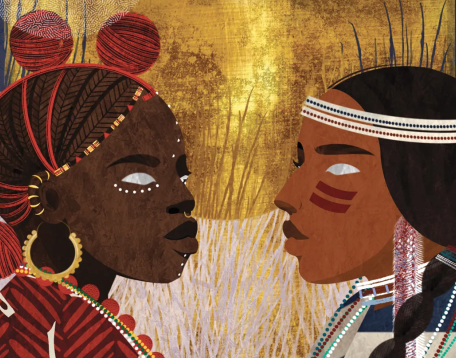
The history of BIPOC communities is marked by significant challenges, including colonization, slavery, forced displacement, and systemic oppression. These experiences have left deep scars, both individually and collectively, contributing to the prevalence of mental health disparities among BIPOC populations. Historical trauma can manifest as intergenerational trauma, where the effects of past injustices are passed down through generations, further exacerbating mental health struggles. Acknowledging and understanding this historical context is crucial for addressing mental health disparities and fostering healing within these communities.
The Power of Culture:
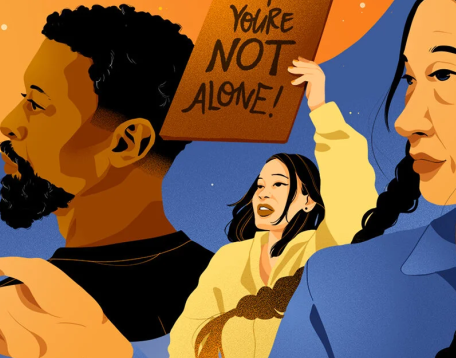
Culture serves as a beacon of strength and resilience for BIPOC individuals. It provides a sense of identity, belonging, and connection to one’s heritage and traditions. Culturally grounded practices, such as storytelling, art, music, dance, and spirituality, offer powerful avenues for healing and self-expression. Embracing and celebrating diverse cultural practices can empower individuals to reclaim their narratives, preserve their history, and cultivate a positive sense of self. By promoting cultural inclusivity and preserving cultural heritage, we can create environments that nurture the mental well-being of BIPOC communities.
The Importance of Community:
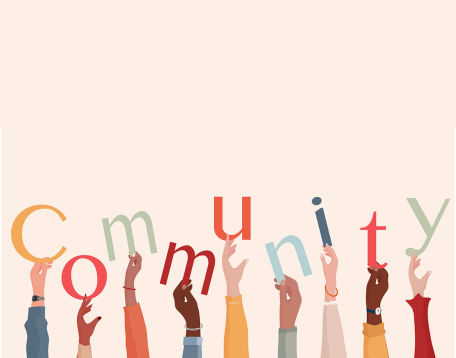
Strong and supportive communities are instrumental in promoting mental health and well-being. BIPOC individuals often find solace, understanding, and validation within their communities. These networks provide spaces for shared experiences, empathy, and mutual support, fostering a sense of belonging and acceptance. Community organizations and grassroots initiatives play a pivotal role in offering culturally sensitive mental health services, advocacy, and resources. Building and strengthening these community networks is essential to combatting the negative impacts of systemic racism and creating spaces that prioritize mental wellness.
The Power of Connection:
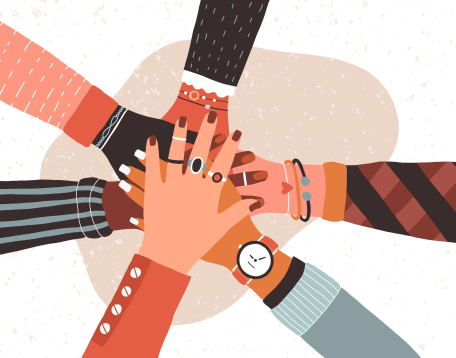
Connection, whether it be with family, friends, or supportive networks, is vital for mental health. In a world that can often feel isolating, cultivating meaningful connections can provide a lifeline for individuals facing mental health challenges. By fostering relationships that encourage empathy, understanding, and active listening, we can create safe spaces where BIPOC individuals feel seen, heard, and supported. Encouraging open dialogue and destigmatizing mental health conversations within our communities are crucial steps towards creating a culture of compassion and connection.
During National Minority Mental Health Awareness Month, we recognize the unique challenges faced by BIPOC communities and the importance of culture, community, and connection in promoting mental health and well-being. By honoring and valuing diverse cultural experiences, building strong community networks, and fostering meaningful connections, we can support the resilience and strength of BIPOC individuals in the face of historical trauma and systemic racism. Let us work together to create inclusive environments where mental wellness flourishes for all, ensuring that everyone has the opportunity to thrive and live their best lives.

